Feline Herpesvirus: Information Every Cat Parent Should Know. Article length: 2000 words. Reading time: 3 minutes. A kitten just adopted and brought home has sneezing accompanied by inflammation at the corner of the eye. The secretions need to be cleared once in a while. In severe cases, the eyes cannot be opened and there are brown secretions all around. Hurriedly taking it to the veterinarian for examination, it is found that it is the common feline herpesvirus. Today, the gardener will introduce this “Feline Herpesvirus (FHV-1)” that up to 80% of cats have been infected with. Regarding the symptoms, treatment, and prevention methods of feline herpesvirus! It is believed that cat parents who patiently read this care encyclopedia can have a relatively high degree of understanding of feline herpesvirus. Understand the symptoms, transmission, treatment, and prevention methods of feline herpesvirus. OPEN. Article directory. Commonly known as cat cold: What is feline herpesvirus? How is it transmitted? What are the symptoms? What is feline herpesvirus? How is it transmitted? What are the symptoms? Feline herpesvirus (FHV-1) is a virus that is not zoonotic. According to animal medical reports, up to 80% of cats have been infected with feline herpesvirus, indicating that its infectivity is very strong. It should be noted that once infected with feline herpesvirus, it cannot be cured! After the symptoms of feline herpesvirus infection occur, if the virus is successfully suppressed, it will only become latent. However, cat parents do not need to be particularly worried. As long as the cat is well-fed and well-rested and lives in a stress-free environment, feline herpesvirus is a disease that is not easy to relapse. Through what medium is feline herpesvirus transmitted? The infection route of feline herpesvirus most often comes from environmental contact and is divided into the following three major types: Transmission through air droplets. The secretions sprayed out after a sick cat sneezes contain herpesvirus. Within a distance of one meter, it may be transmitted through the air. Viruses with strong infectivity should be noted that sick cats and healthy cats should not be too close to each other. The transmission infectivity of feline herpesvirus is high, and special attention should be paid to the contact between infected cats and healthy cats. Transmission through licking sick cat wounds and sharing utensils. Feline herpesvirus may also be transmitted through licking wounds. If a healthy cat licks the wound of a sick cat or shares a water bowl with a sick cat, it is also a transmission route that needs attention. The environment and utensils of cats can be disinfected to maintain safety. Vertical transmission from mother. The third transmission method is relatively difficult to prevent. If a cat mother has feline herpesvirus and comes into contact with a kitten, it is possible to transmit the virus to the kitten during lactation. If a kitten is infected with herpesvirus, it is more troublesome. Kittens have relatively low immunity and may deteriorate into other more serious diseases, such as conjunctivitis or keratitis. Symptoms of feline herpesvirus. Feline herpesvirus is a chronic infectious disease. There will be no obvious symptoms in the initial stage. It is not until the symptoms of the infected cat appear, with secretions around the eyes and redness and bloodshot eyes that cat parents will begin to notice the abnormality of the cat. Symptoms in the initial stage of infection: Similar to the initial stage of a cold. In the initial stage, there will be relatively mild symptoms similar to a cold, such as sneezing accompanied by runny nose and tearing. At this time, cat parents need to pay special attention to the sneezing state and whether it is accompanied by brown secretions.
Worsening of virus infection: Extended and complicated with various inflammations. In more severe infection states such as keratitis, conjunctivitis, pneumonia, rhinitis or nasolacrimal duct obstruction. In severe cases, facial ulcers and erosions may occur. [Extended Reading] What should I do about feline conjunctivitis? What are the causes and symptoms? Infection with feline herpesvirus is often accompanied by respiratory tract infections, leading to other complications. If not properly handled, it can cause many serious symptoms. Special attention should be paid if kittens are infected with herpesvirus. Kittens have relatively poor immunity and the disease may be fatal. How is feline herpesvirus treated? Is lysine (L-Lysine) really effective? Lysine has been proven by research to be ineffective in inhibiting herpesvirus. The National Biotechnology Department of the United States has confirmed that lysine cannot inhibit herpesvirus, which conflicts with common information. The suggestion of the keeper is that lysine has almost no side effects. If there is a habit of daily supplementation of lysine for cats and the intake does not exceed the allowable amount (500mg per day for adult cats), it is fine. The treatment of herpesvirus infection must follow the instructions of professional veterinarians. The keeper will list several treatment methods for feline herpesvirus as follows: After being infected with feline herpesvirus, the environment must be disinfected! The living environment and utensils of cats should be thoroughly disinfected. Then cooperate with the treatment of professional veterinarians. The treatment of feline herpesvirus usually adopts supportive therapy. Control secondary infections according to the instructions of professional veterinarians. If the situation is more serious, antiviral drugs will be used. Control the cat’s diet to maintain normal eating and nutritional status. Generally, cats often lose their appetite during the illness period. At this time, food with stronger flavors can be used to maintain the cat’s eating and prevent dehydration and malnutrition. Source: https://www.ncbi.nlm.nih.gov/pmc/articles/PMC4647294/. Care after treating herpesvirus? How to prevent recurrence? As mentioned earlier, after 90% of cats successfully suppress the virus infection, they will return to a latent state. At this time, as long as the cat does not experience excessive stress and maintain its immunity, it is usually not easy to relapse again. The keeper has sorted out several methods to prevent excessive stress in cats. I hope that carrier cats can live a relaxed and healthy life: Cats are sensitive animals and have a strong sense of territory. Drastic changes in the environment are a source of stress for cats. Therefore, do not change the daily environment layout at will and do not disrupt the daily habits of cats to prevent excessive stress in cats. More petting, more health. Pet your cat to your heart’s content. If your cat likes to interact with you, then massage and stroke it more to keep it in a happy mood every day. But be careful not to pick it up forcefully, as this will put the cat on alert and cause stress. As mentioned earlier, cats are sensitive animals. Therefore, do not yell at or beat them. Excessive noise will also cause them to enter a state of stress and alert. If the cat can maintain a relaxed daily life, eat well, sleep well, play more games and interact, and eat normally, it is not easy to trigger herpesvirus again. And feline herpesvirus will not have any abnormal conditions in the latent state. Even if it is a carrier, it can still be a healthy cat.
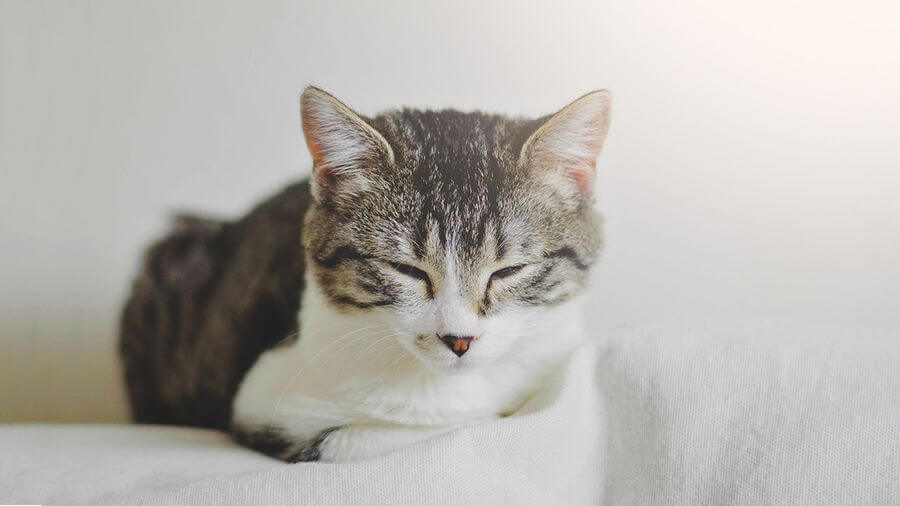
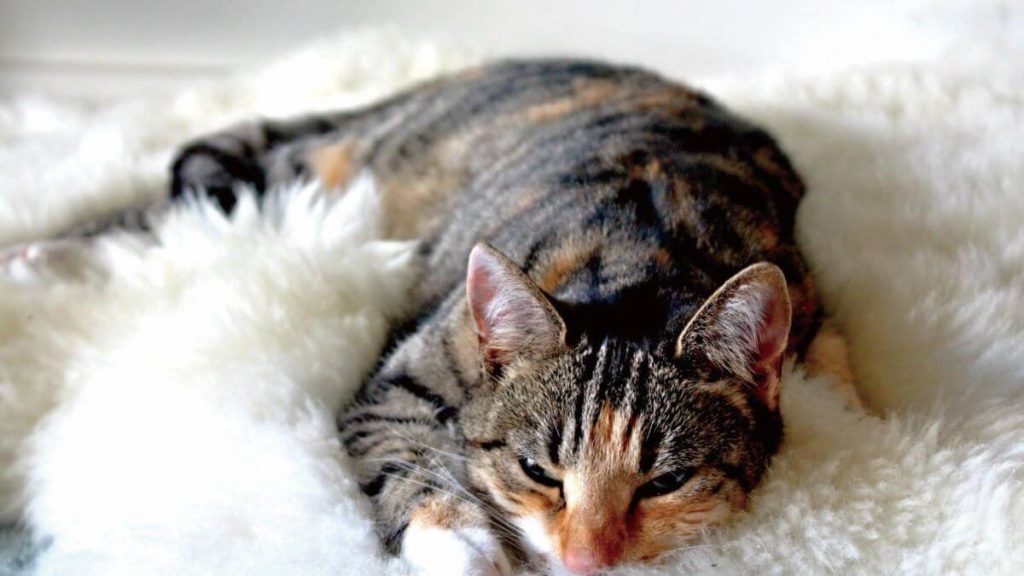
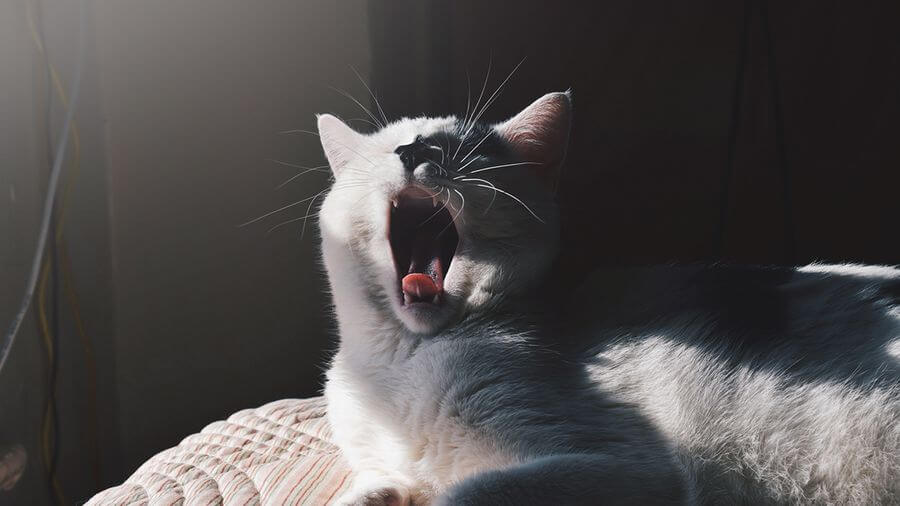
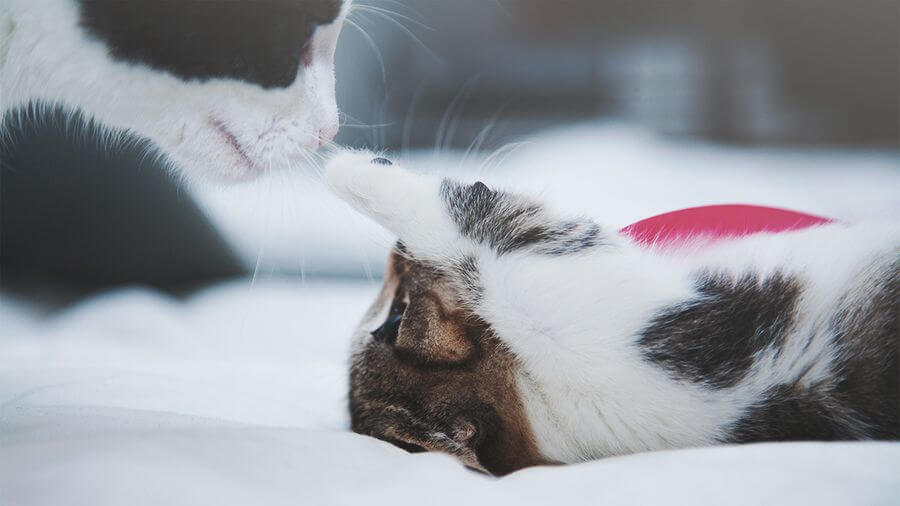
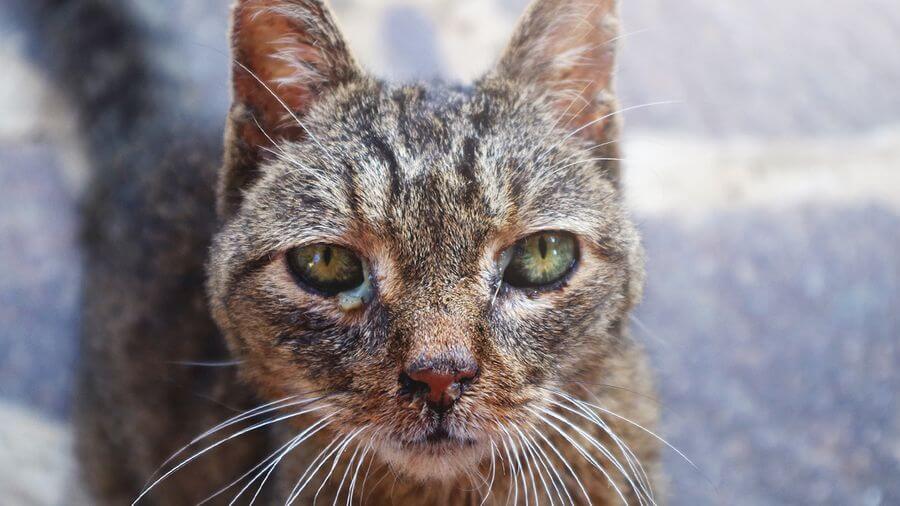
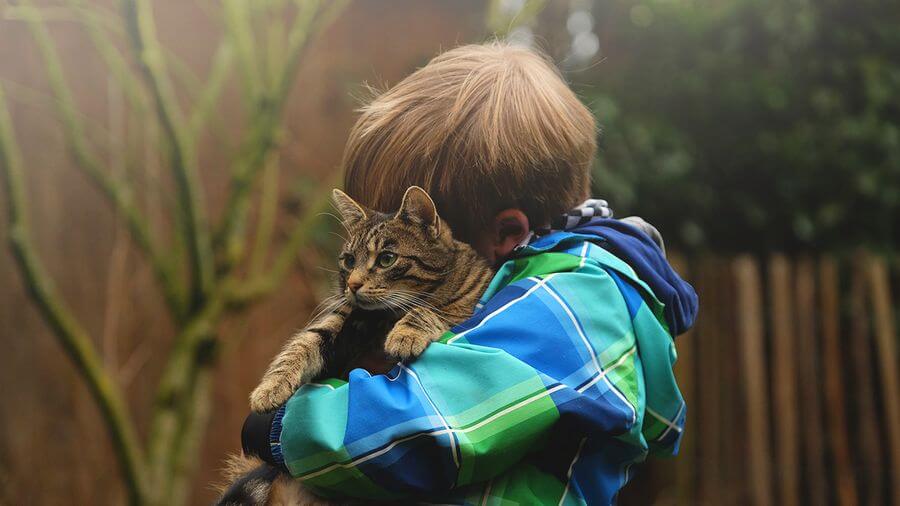
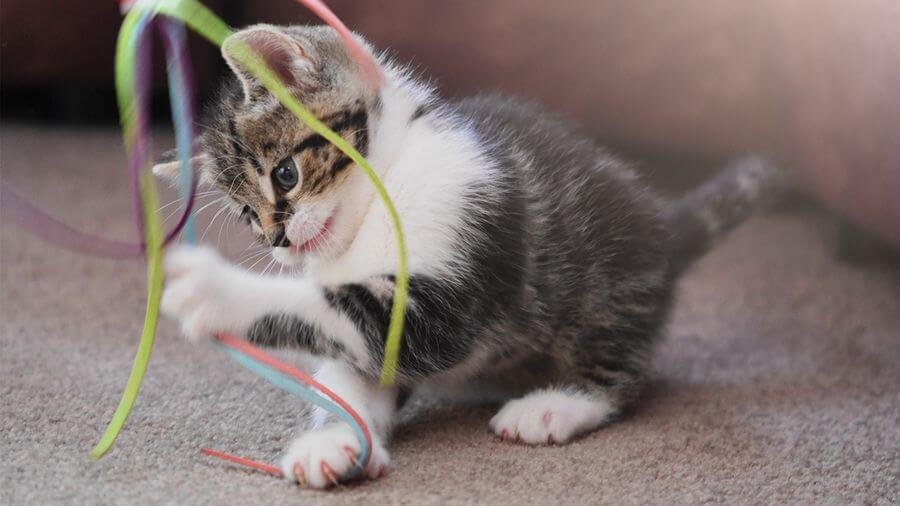
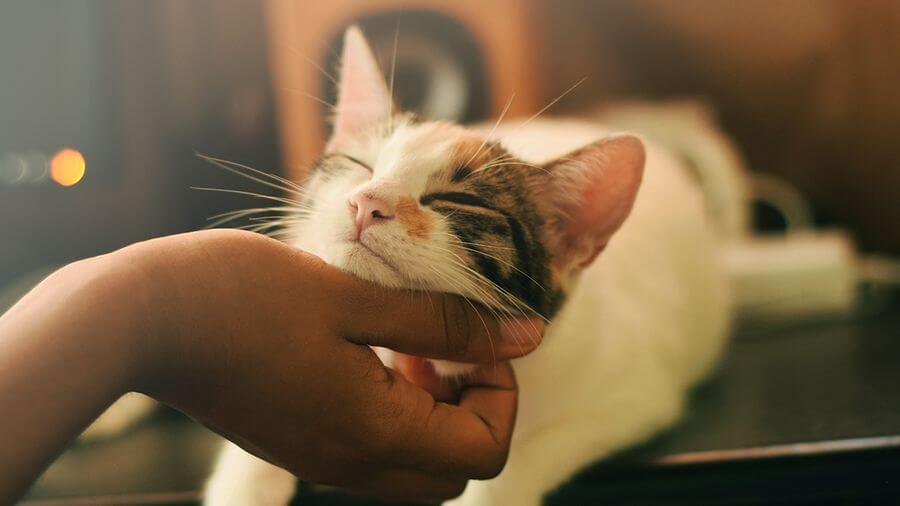
Playing with cats and maintaining their activity level is also an important activity for maintaining their immunity. How can we prevent cats from being infected with herpesvirus? Vaccinating cats is very important for preventing various diseases! The core vaccines for cats include those for preventing feline panleukopenia virus, feline calicivirus, and feline herpesvirus. The trivalent vaccine can be administered once a year to strengthen immunity. Regularly disinfecting household utensils can also prevent cats from being infected by viruses when their immunity is low. Keeping cats in a healthy and stress-free environment is the best strategy. Avoiding cats from contacting strange cats can prevent them from inadvertently being infected with herpesvirus. In daily diet, lysine can be supplemented to increase the immunity of cats. Although studies have confirmed that it cannot inhibit herpesvirus in symptomatic cases, proper daily supplementation to improve the resistance of cats is also a good preventive method. In conclusion, feline herpesvirus is a virus that cannot be cured after infection. However, cat parents don’t need to be particularly sad. As long as the daily environment and diet are properly arranged and the above care and prevention methods are followed to avoid stress sources, furry kids can still live a healthy and happy life. Regarding the supplementation of lysine, current studies have confirmed that it cannot inhibit herpesvirus. However, as a health supplement for daily resistance improvement, it is still possible. But be careful not to consume too much and take it according to the instructions of professional veterinarians. Next time, the director will write another article about lysine and cats to introduce it in detail. Limited-time experience set, only 50 yuan, and there is also a free shipping coupon. Click to use it.?? petdaddy. Thanks for watching. If you find the director’s article very useful, you can click the share button below to share it on LINE and FB for all those who need information. You are also welcome to join the LINE discussion group for cat parents and discuss pet experiences with 670 cat parents.
